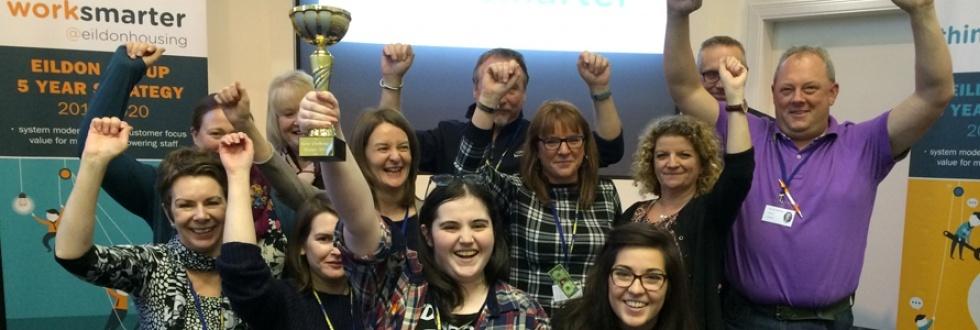info@teamchallenge-company.co.uk
03300 04 09 03

Having an employee development plan is not only necessary for the futureproofing of a business, but also for the all-important retention of key members of staff. Without a vision for where the company sees employees moving forward or a clear career path within the business, members of staff can be tempted to look elsewhere at companies that are willing to offer what they are looking for when it comes to career progression.
It is human nature to be constantly looking at what your next step is, and it certainly isn’t any different in the workplace. Progression is an important aspect of forging a career, otherwise, employees may feel as though they are stuck in a dead-end job with no opportunity to better either themselves outside of work or within their position at your company.

Every company needs to have a staff development plan in place - not just one that looks good on a page inside the employee handbook, but one that works in the real world, too. An effective plan will always cater to both the needs of the employer and the employee, which is why conducting a skill gap analysis is essential.
Not only will this help you to understand the skills of your employees against both their current roles and those they aspire to have, but you will get a better idea of the skills that are present in your team, and any that are missing, too. If, after your analysis, you discover that your team is severely lacking in key areas, you can incorporate this into your overall staff development plan. Training current employees to fulfil roles internally makes more commercial sense than hiring a whole new person that will also require training, as well as time to bed in with the team and their new surroundings.
To conduct a skills gap analysis, you should create a list of all of the roles within your team or company, department by department, and list the skills and responsibilities that come with them to give you a full overview of what is required for the team to succeed. Once you have them, move on to conduct an employee review to gauge the skill set of your members of staff – this will highlight areas of development, as well as opportunities to move into other areas of the businesses where they may already have the relevant skillset to take on the extra responsibility.

When you have identified an employee who has shown the potential for growth in the business, you want to hold on to them and give them a reason to stay for the long-term rather than allow them to seamlessly fall out of your grasp and into those of your competitors. In these instances, a personalised employee development plan that is tailored to the needs of the member of staff in question is not just required but also incredibly helpful for personnel tracking.
By sitting down and holding discussions with the employee, you can find out exactly what their goal is within your company and ask for their own feedback on any training they feel would be beneficial to their development. Here, you can set out a clear process and outline where you see the employee positioned in the short to long-term in the business. When staff recognise the investment an employer has made in them, and feel appreciated, they are much more likely to stay loyal.
Making up part of any effective staff development should be team-building exercises and events that all of the team can take part in. Events, such as those hosted by Team Challenge Company, make for a fantastic means of encouraging members of staff to operate outside of their comfort zones and push themselves, ultimately developing and discovering new skills.

As well as developing the individuals themselves, team building days also work to increase the cohesivity and productive nature in the team. By taking the team outside of the usual workplace setting, you are taking away any pre-existing barriers that might exist between colleagues. You will also find that members of staff may veer away from the structure of their job roles with juniors feeling more comfortable in taking the initiative than they may do in the normal work environment. This can only be positive to the business, highlighting the natural leaders that they already have.
While keeping in mind that the best team building events are not just fun, but they are also an opportunity to learn about what makes your staff tick. Seeing how they operate outside of the workplace brings to light the positives that you want to bring inside of the workplace, ultimately developing staff both on an individual and collective basis.
Development and Team Building Specialists
As specialists in the team building industry, Team Challenge Company takes great pride in the over 400 events that we offer, all of which have been designed with a scientific approach that gets the best out of you and your team. For more information on our vast range of events, or to discuss a bespoke offering tailored to your business, get in touch with on 03300 04 09 03 or send us a message via the contact page today.